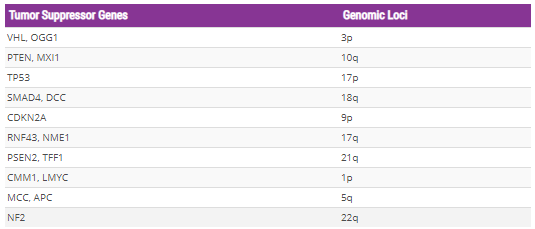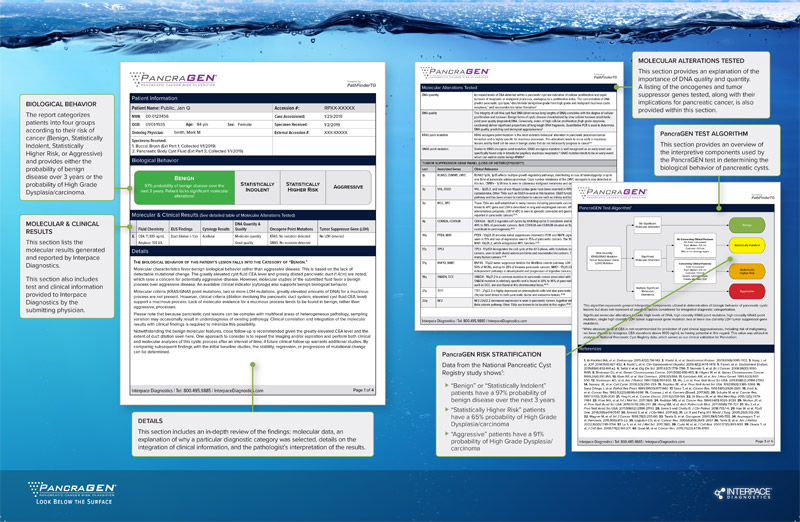

How PancraGEN® Works
PancraGEN® is a cutting edge, proprietary integrated molecular pathology test that assesses the cumulative DNA mutations in key oncogenes and tumor suppressor genes associated with pancreatic cancer. PancraGEN® can help assess risk of malignancy in patients with cysts and enhance your diagnostic tools such as EUS imaging, CEA, Cytology and other risk factors by providing more information for use in management decisions.
PancraGEN® Identifies:
- Quality and Quantity of DNA in cyst fluid
High levels of intact DNA are associated with actively dividing cells
- Oncogene Mutations
KRAS and GNAS - Tumor Suppressor Gene Mutations

Specimen Types:
- Aspirated pancreatic cyst fluid
The Report
The PancraGEN® Results Report provides an assessment for risk of cancer to help you with long-term patient management strategies.

The PancraGEN® report includes:
Biological Behavior
The report categorizes patients into four groups according to their risk of cancer (Benign, Statistically Indolent, Statistically Higher Risk, or Aggressive) and provides either the probability of benign disease over 3 years or the probability of High Grade Dysplasia/carcinoma.

Molecular & Clinical Results
This section lists the molecular results generated and reported by Interpace Diagnostics. This section also includes test and clinical information provided to Interpace Diagnostics by the submitting physician.
Details
This section includes an in-depth review of the findings: molecular data, an explanation of why a particular diagnostic category was selected, details on the integration of clinical information, and the pathologist’s interpretation of the results.
Molecular Alterations Tested
This section provides an explanation of the importance of DNA quality and quantity. A listing of the oncogenes and tumor suppressor genes tested, along with their implications for pancreatic cancer, is also provided within this section.
Test Algorithm
This section provides an overview of the interpretive components used by the PancraGEN® test in determining the biological behavior of pancreatic cysts.
Risk Stratification
Data from the National Pancreatic Cyst Registry study shows:
- “Benign” or “Statistically Indolent” patients have a 97% probability of benign disease over the next 3 years
- “Statistically Higher Risk” patients have a 65% probability of High Grade Dysplasia/carcinoma
- “Aggressive” patients have a 91% probability of High Grade Dysplasia/carcinoma








